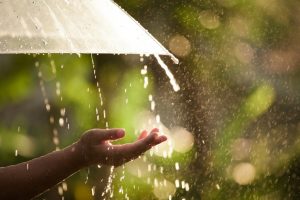Why You Shouldn’t Drink Rainwater

As a kid, you may have enjoyed playing in the rain, and many children like to try to catch some of it in their mouths to drink. It may seem like rainwater would be safe to drink because it hasn’t become contaminated, but is that really the case?
As rain passes through the atmosphere it picks up contaminants that are in the air, so it’s not as pure as you might think. As rain lands, it can pick up chemicals from landing on plants or buildings or other structures. While many people in the world use rainwater as their main water supply, the water picks up bacteria, pollution, mold, pollen, and other contaminants.
You can treat rainwater to make it drinkable by using water purification tablets or boiling it. You can also use a water filtration system if you prefer to drink water from rain to conserve resources. In most areas, it’s also difficult to collect enough rainwater to drink. Rainwater can be used for gardening, dishwashing, and toilet water, but many water experts don’t recommend drinking it.
Rainwater tanks contain many contaminants including microorganisms, bacterias, and traces of toxic metals. You can also find bird and animal droppings and the bacterias we are talking about are serious strains like E. coli.
No matter where you get your drinking water from, it’s recommended that you use a drinking water system or specialty treatment system. A drinking water system from Schultz Soft Water provides your family with an unlimited supply of high-quality drinking water right from the tap. It improves the taste of your water and filters out harmful chemicals, bacteria, and metals. To learn more or schedule an appointment give us a call today at 800-289-2807.


